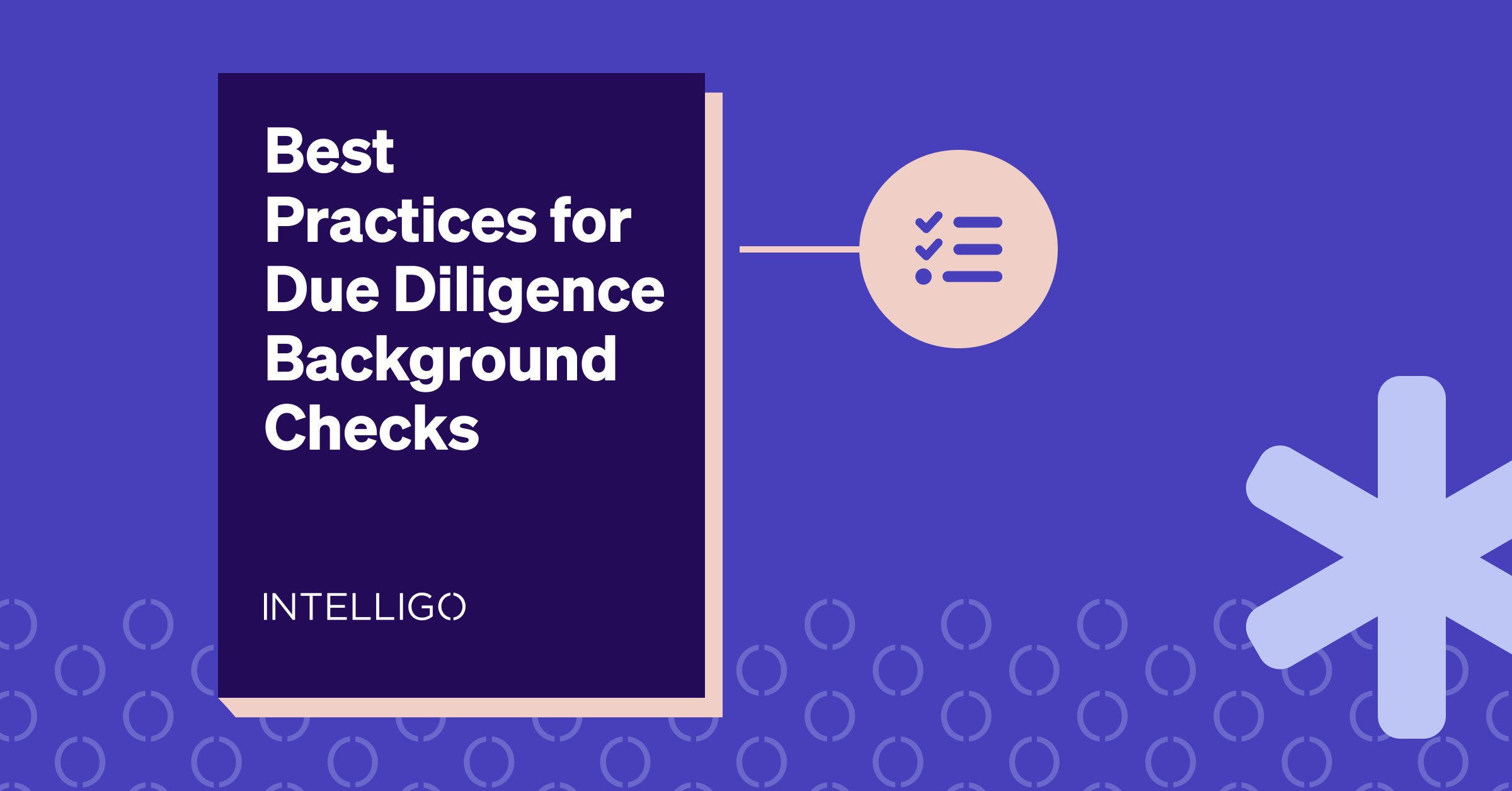Executive Background Checks: What Are Execs Hiding?

Executive management and board members stand at the helm, steering a company towards success. However, given the power and responsibility of upper-level management, investors and board members need to be sure they are placing their trust and their capital in the right hands. But how can investors know if an executive candidate is telling the truth about their background? In this case, many firms are using executive background checks to provide the complete picture of any potential business partner or executive hire.
Are executives really who they say they are?
The case of cryptocurrency company ZenLedger’s COO Dan Hannum is all too common in the investment world. In March 2022, ZenLedger revealed that the IRS had decided to continue using its software, marking a major win for the company. However, only a few weeks later, everything came crashing down on Hannum.
Hannum was fired after it was discovered that he had lied about his background. The executive claimed to have both an undergraduate degree and MBA from the University of South Carolina, with Hannum then going on to work at Goldman Sachs, Morgan Stanley, and TD Ameritrade. His claims went even further as Hannum led people to believe his own fund had assets of $100 million under management.
It turns out that Hannum had attended the university but never completed his undergraduate or MBA degrees, and all three of the major investment firms he claimed to work for had no record of his employment. As for the $100 million in assets, this claim was false too.
This, unfortunately, is not the first time a high-power executive has lied about some aspect of their personal or professional history. Given the staggering number of cases of executive background misrepresentation, it is essential that funds know that the people managing their investments, and their capital, are reliable and upstanding individuals.
One way to establish the transparency that is needed in today’s business environment is to run an executive background check during the due diligence process. Putting comprehensive executive background screening procedures in place can provide firms with the information they need to make sound investment or hiring decisions.
Why would an executive lie about their background?
It’s human nature to try to present the best possible version of yourself. In addition, people, generally speaking, want to hide any adverse information about themselves.
According to a 2020 ResumeLab survey, 93% of respondents said they knew someone that lied on their resume. That being said, participants were much less forthcoming when it came to owning up to misrepresentations about themselves. About 36% of survey participants admitted to lying on their CVs, with 56% embellishing details in some way.
This holds true for company executives. Since executive management is the face of the company and holds a high-power position, there is more risk to an investor if a top-level executive isn’t being transparent.
What’s more, given the competition for jobs at the C-suite level, executives may feel like they have to over-inflate their credentials to get ahead.
The line between embellishing and lying
Embellishing details about your personal or professional background can be innocent, but in certain cases, could raise doubts about a high-level candidate’s character and integrity.
It isn’t always easy to determine at what point exactly embellishment crosses the line, so it can be helpful to think in terms of specific examples. For instance, simply exaggerating your tasks or responsibilities in a previous position is very different from a CFO that falsely claims to have earned certified public accountant (CPA) designation when in fact they haven’t.
Common examples of ways executive-level candidates embellish their CVs are falsely claiming to have skills or degree(s) they don’t have or lying about attending a specific university, inflating obtained GPA, and claiming to have a higher-level title than a person actually had.
What’s more, some high-level candidates claim to have worked in a specific position for more time than they actually did to cover up a short period of time spent in another position. This raises questions about the individual as they may be hiding gaps in employment to cover up something adverse about themself. A subject of a background check might conceal gaps in employment if they were fired from a position, if the company went bankrupt under their leadership, or if the SEC opened an investigation into the company under their leadership.
According to Intelligo data, out of 2,995 high-level executive background checks that were analyzed, 36% of subjects didn’t put their full employment history on LinkedIn. In addition, 14% omitted part of their work experience from their LinkedIn profile.
Why won’t an internal background check alone cut it?
There are several reasons that executives get away with lying about their background more than the average employee, even when internal background check procedures are in place.
Part of the problem is that typically, HR professionals are under more pressure to find top-quality candidates for management positions. Therefore, in some cases, the vetting process for potential high-level hires or business partners could be rushed or very minimal. Additionally, it is often assumed executives couldn’t have reached their current position if they lied about their experience. As a result, business executives are sometimes exempt from undergoing a background check.
Furthermore, executives move from one company to the next without undergoing a background check thanks to the “old boys network” that exists in today’s financial world. They often also have support and recommendations from other high-level executive managers in the industry.
These challenges cause comprehensive executive background checks to fall through the cracks. However, the long list of corporate scandals demonstrates the need to conduct proper background screenings for everyone, regardless of status and experience.
Improving executive screening with deeper background checks
Executive background screenings can provide valuable insights into an individual’s professional and personal integrity. If an individual has questionable decision-making skills in one area, it might be an indication of their decision-making skills in other areas, potentially affecting the way they run the organization. Background checks offer a full assessment of an executive, allowing investors to make informed decisions with an understanding of all the possible risks involved.
What do executive background checks include?
Based on industry standards, executive background checks usually include the following:
1. Essential details– An executive background screening introduces the subject by providing their basic information, such as date of birth, last known address, social security number, etc.
2. Education verification– A background screening should verify their degree(s) to confirm that the credentials the subject claims to have are legitimate.
3. Professional history– Additionally, a list of the subject’s past employment as well as dates of employment is included. This timeline of previous positions can expose potential gaps in employment and/or very short periods of time in a position.
4. Legal records– Criminal records and civil records are highlighted in the legal section of a background check.
Additional information that can appear on a subject’s executive background check is any assets they claim to have, political contributions, sanctions lists and other databases, as well as adverse news related to the subject.
Consequences of not conducting an executive background check
Reputational – Today, any executive misconduct can instantly turn into a media nightmare for an organization. Executive management is the heart of a company and any harmful actions or behavior can have far-reaching reputational consequences. While it doesn’t take much to tarnish a reputation, it can take years for businesses to repair this damage, if at all.
Financial – Furthermore, reputational damage leads to financial consequences. Shares of the company they manage could plummet due to a lack of investor confidence in the executive management team.
Legal – If that isn’t enough, questionable decisions made by executive managers can leave the company open to legal liabilities, such as lawsuits.
Technology is disrupting the executive background screening space
Technology offers a new avenue for background check service providers to process and analyze criminal and civil records, assets, bankruptcy claims, and adverse media, regardless of differences in language or jurisdiction, during the pre-investment due diligence process or the pre-hiring process.
By using the power of AI and machine learning, thousands of data points can be reviewed quickly, streamlining and improving the efficiency of executive screening.
The bottom line
It feels like almost every day there’s another case of a new executive that has been caught lying about aspects of their background. One of the most effective ways to mitigate risk and prevent unreliable individuals from being put into high-power positions is to conduct comprehensive executive background screenings during the pre-investment due diligence process or the pre-hiring process. By weeding out individuals with questionable integrity, investors can be confident they are placing their trust and capital in worthy hands.
Background checks tailored to your business needs.
Companies of all sizes, from boutique investment firms to global asset allocators, use Intelligo for all their background check and continuous monitoring needs.



